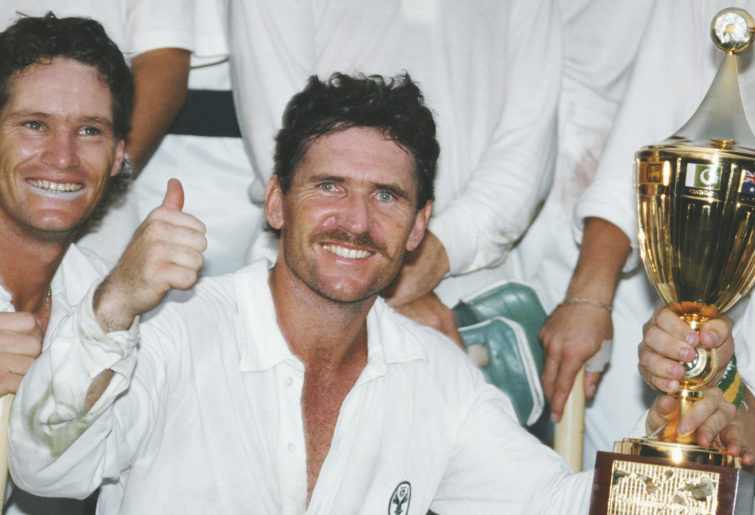Calamitous miss as Lucknow botch near certain run out with the game on the line
With Rajasthan needing 25 off 17, both batsmen ended up at the same end but the bowler dropped the throw from his teammate -…
Opinion
The first Test that I watched was the historic Centenary Test at the MCG in 1977. Cricket, at the time, was very much a minority sport in Bangladesh.
In fact, there were even attempts to ban cricket here describing it as a sport only of the rich.
Nevertheless, BTV showed highlights of the match; and ever since then, I have followed the oldest rivalry in test cricket with keen interest.
And for some reason, I always find something special about the Ashes Test at Headingley. Of course, the memory of Sir Don Bradman and his almost perfect record at the ground is always there. The 400+ chase of the Invincibles was just the icing in the cake.
Then there was Geoffrey Boycotts’s 100th first class hundred in 1977, followed by the Ian Botham’s Test of four years later. In more recent times, there was Ben Stokes’ bravery.
Amidst all these memorable Headingley tests, the Australia victory in 1989 mostly remains unnoticed. Yet in the context of Ashes history-that result carries great significance.
The first Test of the 1989 Ashes started on 8th June; and Allan Border’s men were the clear underdogs; both for the Test and for the series.
There were a number of reasons behind these. The team was short in experience in English conditions, only three players including skipper AB had played a Test in England before.
Terry Alderman and Geoff Lawson, the new ball bowlers were well in their 30s. And both had just started their comeback in to international cricket; Lawson from Injury, Alderman from his ban.
Also, at the away time away series success was rare for the Aussie team for more than a decade. And history wasn’t on their side either; their previous victory at the ground came exactly 25 years ago with Bobby Simpson’s men defeating Ted Dexter’s team.
A green wicket was expected offering plenty of help for the seamers; and both sides went in to the match without any specialist spinner.
In this context, David Gower’s decision to bowl first seemed obvious; and it seemed the right move as the tourists were restricted to 2-57; both Geoff Marsh and David Boon falling cheaply.
At the end it was the patient batting of Mark Taylor (96*), that helped Australia end the day at a respectable 3-207; the honours were shared.
Australia took dominance on the second day, after Taylor completed his first Test hundred. Steve Waugh scored also scored his first in his fourth year in test cricket to give his side the upper edge.
Unlike Ben Stokes, Border didn’t believe in any surprise declaration strategy; in fact the Aussies batted for about half an hour on the third morning before declaring at 7-601.
Waugh remained unbeaten on 177; even Merv Hughes chipped in with a quick-fire 71.
However, neither Hughes, nor the other pacers made much impression on England batting on this day; and the home side looked comfortable going in to the rest day at 4-284; Allan Lamb; always at home on English pitches was 103*. A draw looked the most likely result.
It looked even more so; when England reached 430 to avoid the follow on. Border declared the second innings early on the final day setting the Poms a target of 402. In the modern days of Bazball; England would have given it a go; but back then it was just about surviving the day.

(Photo by Allsport/Getty Images)
Remarkably, the England innings lasted just 55 overs and 2 balls as Aus won by 210 runs. Alderman got his out-swingers going perfectly with the new ball and ran through the top order.
Veteran opener Graham Gooch stood firm at one end but by the time he was the sixth man out- trapped LBW by Hughes, the fate of the match was already decided.
Alderman took 5-44 to complete a 10-wicket haul and took the MOM award.
Hughes looked a different bowler from the first innings and took 3- 36; and while Lawson who had hardly played any Tests for three years looked a bit short from full fitness; he too chipped in with couple of vital wickets.
Overall it was a fabulous team effort.
The consequences? This result had great implications; both short and long term.
The win gave Border’s men the initiative and they went on to win the six-match series 4-0. They were the dominant force in the twi drawn matches; and but for weather interruptions a remarkable whitewash was possible.
It was a great personal triumph for Terrry Alderman, the West Australian medium pacer. He took 41 wickets in the series appearing almost unplayable to the England top order.
He was the obvious choice for the Player of the Series award.
As for long term effect, this match started a remarkable dominance by Australia over their arch rivals. Starting from Headingley, Aus won 11 out of 16 Test matches; the other five were drawn.
England finally ended their poor run with a victory at the Oval in 1993, but even then it was only a temporary respite. They would have to wait till 2005 to regain the Ashes lost in 1989.
The current scenario?
After two exciting finishes, Australia goes to Headingley knowing that a victory would clinch the series for them (Stuart Broad might think otherwise).
In fact a draw would be enough for them to retain the Ashes. But most Australia fans would want Pat Cummins’ men to carry on the winning streak.
As for Ben Stokes and co. it’s now or never. Like everyone else, I am eagerly looking forward to the action on Thursday morning in England.